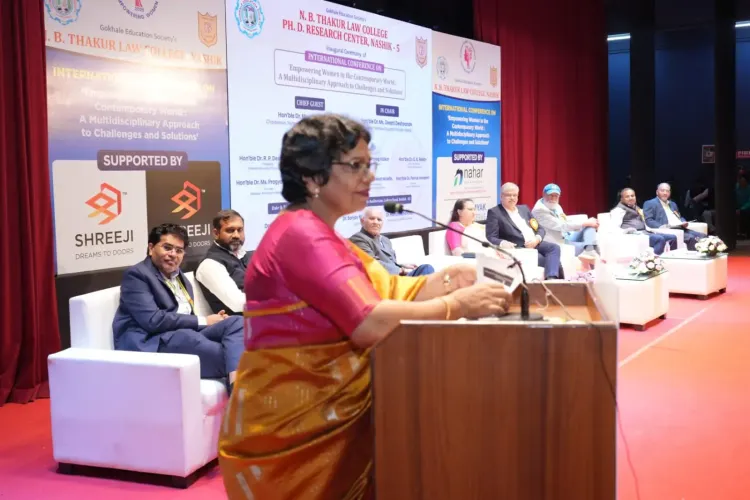Should Women Empowerment and Gender Equality Start at Home?

Synopsis
Key Takeaways
- Women empowerment and safety are critical issues.
- Gender equality must start at home.
- NCW is focused on the rights of marginalized women.
- Education and nutrition for girls are priorities.
- Women's empowerment fosters national progress.
Pune, Oct 5 (NationPress) The topics of women empowerment and safety were paramount during the discussions led by NCW Chairperson Vijaya Rahatkar during her two-day visit to Pune and Nashik. She emphasized the importance of cultivating a culture of gender equality within households, an official reported on Sunday.
At Savitribai Phule Pune University, the NCW Chairperson spearheaded discussions at the "Nomadic and Denotified Tribes Women's Rights Conference". This event, held in the Department of Geology, aimed to address the issues faced by women from marginalized and vulnerable tribal communities.
On Saturday, Rahatkar, who previously served as mayor of Chhatrapati Sambhajinagar, reiterated the need to cultivate a culture of gender equality in homes, urging that this concept should not be confined to schools, colleges, or workplaces.
During a conference on the challenges of women's empowerment in Nashik, she called for enhanced awareness among local committees (LC) established to handle complaints of sexual harassment. She assured that the NCW would intensify its efforts in this area.
The NCW Chairperson noted that these committees still have considerable work ahead to safeguard the rights of women in the unorganized sector.
Rahatkar characterized women as equal partners in nation-building and underscored the NCW's commitment to their health, nutrition, and education.
She shared information about an NCW initiative aimed at improving the education and nutrition of girls from pre-primary levels.
In a post on X, Rahatkar remarked, "Inaugurated the International Conference on the highly relevant topic 'Empowerment of Women in the Contemporary World: Challenges and Solutions' organized by N.B. Thakur Law College of Gokhale Education Society, #Nashik."
"The empowerment of women transcends class; it is foundational to the progress of our society and nation. When women are secure, educated, and economically independent, families, communities, and the country become robust," she stated.
"By integrating health and nutrition, employment and workplace safety, digital empowerment, political participation, education and legal awareness, social security for the unorganized sector, and media representation, we can realize the true essence of women's empowerment. #NCW #nashik #WomenEmpowerments," she added.









